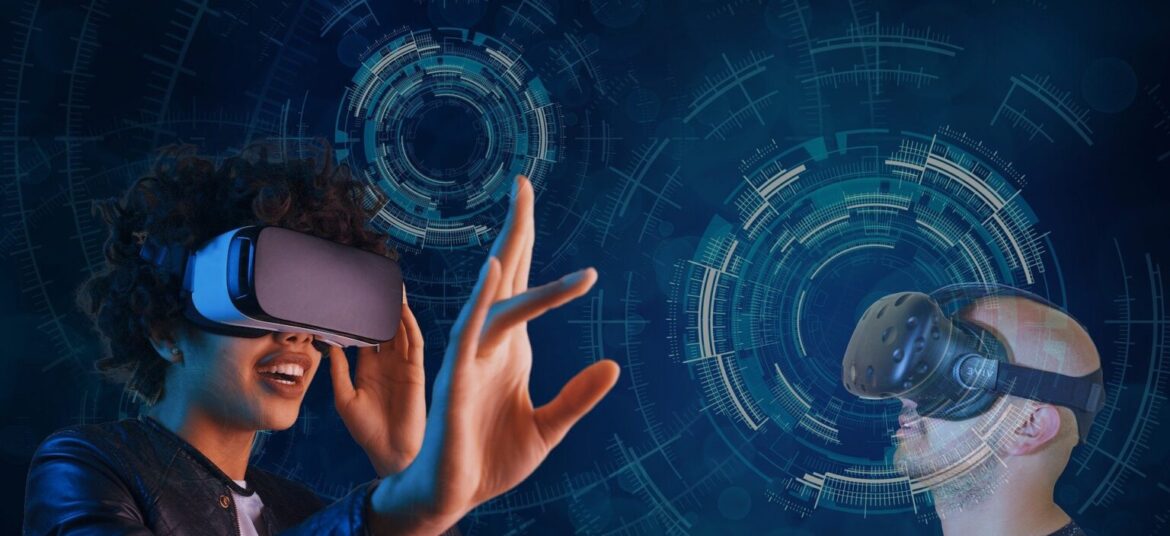
Singapore billionaire Peter Lim’s 28-year-old son, Kiat Lim, is building a social networking app called ARC. But on the metaverse. This social media platform will host exclusive events and gaming zones for the virtual avatars of members where users either pay via non-fungible tokens (NFTs) or buy an annual subscription.
Kiat’s idea may sound premature but ASEAN’s preferences are changing fast. A transition into the metaverse, which is simply a 3D virtual world backed by blockchain networks, has begun in the region and businesses have to evolve quickly to meet the needs.
Million-dollar deals are being signed to buy virtual plots, digital avatars are playing live games on the metaverse, and now even wedding venues have moved to this parallel universe.
Southeast Asians have gone a step ahead and are even ready to buy products and digital assets on the metaverse, paying real money online or through cryptocurrencies. A survey by Milieu showed that ASEAN citizens are excited about the metaverse and are gearing up to explore these platforms.

Southeast Asia’s digital landscape is booming. An annual study by Meta (formerly Facebook) and Bain & Co. found that almost eight in 10 people (78%) among ASEAN’s population of 15-year-olds and above will be digital consumers by the end of 2021, with the strongest growth in Indonesia. The region’s online retail penetration is also projected to grow 85% year on year by the end of 2021.
Taking a cue from these numbers and the rising popularity of metaverse, businesses cannot afford to stay put.
The metaverse architecture, including tokens and virtual reality/augmented reality headsets, is going mainstream. This allows customers to perform a series of tasks from gaming, walking on virtual land, working remotely in such spaces, shopping as well as trying on clothes and accessories virtually.
How is ASEAN catching up?
The move to the metaverse started in 2021. Here, blockchain-based game Axie Infinity, made by a Vietnam-based Sky Mavis, started leading the charts.
The game involves an Axie metaverse where you collect, breed, raise, and trade creatures called ‘Axies’. Here, Ethereum could be used to buy accessories for the Axies, buy virtual plots, and trade these goods with fellow players using NFTs.
The company’s market capitalisation has reached $8 billion, thanks to the craze surrounding this game. In fact, in November 2021, a plot of virtual land sold for $2.3 million on the Axie Infinity platform. According to the company, it’s the largest amount of money ever paid for a single piece of digital real estate on its platform.
Other projects are taking shape simultaneously. The Parallel is a metaverse project in Vietnam that aims to provide a digital universe with elements of gaming and entertainment, with the opportunity to earn passive income. Also, fashion brands such as BOO have expressed intentions to launch products in the digital land by partnering with the metaverse project VerseHub.
For businesses, this is an opportunity to reach customer homes and sell products, without having to spend a single penny on setting up physical offices or hiring sales staff. All transactions happen in the digital universe and the products remain virtual.
Games like Axie Infinity are also opening up a source of livelihood for youngsters and the elderly. How it works is if you win battles with your Axies, you earn an in-game resource that can be exchanged for cryptocurrency ETH. In the Philippines, a 66-year-old grandmother earns a living and is able to pay her medical bills because of Axie.
In addition, a larger group called MetaDhana is working in the Philippines to develop a metaverse ecosystem to establish tokens, play, and earn virtually.
When it comes to Thailand, the metaverse is an extension of the government’s Thailand 4.0 initiative. This plan aims to transform the country into a value-based economy driven by creativity, innovation, and technology.
A slew of metaverse projects is already running in the country, including Metaverse Thailand by A-PLUS fintech to buy virtual land and also develop real estate plots digitally. Similarly, retail giant Siam Piwat, known for Bangkok’s shopping malls, has unveiled its parallel world strategy and partnered with digital asset advisory firm XSpring Digital to create new shopping experiences virtually.
Looking at the rate of acceptance, governments have also joined the metaverse bandwagon. In Indonesia, the government is planning to showcase a metaverse version of its capital city, complete with all the monuments and the Presidential Palace.
On the corporate side, metaverse software firm WIR Group is inviting global companies Meta (formerly Facebook) and Microsoft to develop AR/VR capabilities for the Indonesian metaverse. This will be a public-private partnership to develop an alternate universe where local residents can live, work, play and earn on the metaverse.
The race to ace metaverse
While platforms such as Axie are in the race to develop a sustainable business model in the digital universe, technology platforms such as Meta and Microsoft have begun the shift rapidly investing billions of dollars.
It is not just real estate, gaming, and retail, but offices are also being reimagined on the metaverse. Through Meta’s Horizon Workrooms, the social media giant is inviting companies to collaborate with them to develop workspaces on the metaverse and enable remote working in real-time.
Singapore’s BuzzAR is also transitioning to join Meta to co-create a metaverse ecosystem. The technology company run by gaming industry veterans Ken Lim and Bell Beh announced the acquisition of The Cooking Game VR, a Facebook Oculus Spotlight virtual reality (VR) simulation game.
Though ASEAN has a good mix of high-income and middle-income populations, the success of the metaverse is also dependent on making the platforms and its AR/VR devices accessible and affordable.
Who will win the metaverse race between the incumbents and the young ASEAN businesses will be eagerly watched in Southeast Asia.

Kavita Panda is our Chief Operating Officer and Country Manager for India. Kavita was Executive Director of The Walt Disney Company India, wherein, she spent a decade and half in various business roles across Content Syndication, Licensing and Merchandising, Solution Sales and Advertising Sales.
Stay up to update with our latest news.
Have Us Contact You
